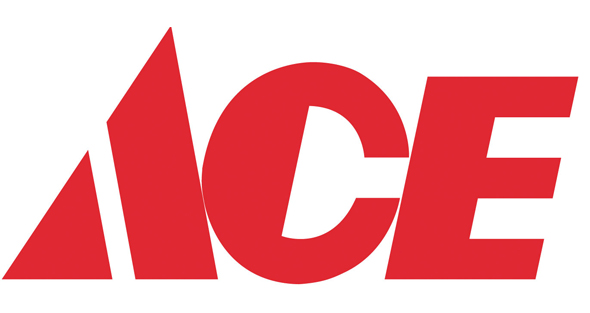 Ace Hardware recently announced the acquisition of Emery-Waterhouse, a 170-year-old distributor of hardlines products for independent lumber, paint, industrial and hardware outlets throughout the Northeast.
Ace Hardware recently announced the acquisition of Emery-Waterhouse, a 170-year-old distributor of hardlines products for independent lumber, paint, industrial and hardware outlets throughout the Northeast.
Hardware Retailing editors sat down with Ace President and CEO John Venhuizen to talk about his goals for the acquisition and what it means for retailers and manufacturers.
Hardware Retailing (HR): What was Ace’s goal behind the Emery-Waterhouse acquisition?
John Venhuizen (JV): Overall, we know that we operate in a consolidating industry both in retail and in wholesale. The truth of the matter is, Ace has the largest hardlines distribution channel in the world, yet we’ve never monetized that. Our distribution channel has only ever been available to our shareholders, so the question was how do we get leverage on that?
On the wholesale side, selling wholesale to pure independents is a $15 billion market. Today, we have $160 million of that because we now own Emery-Waterhouse, but there’s a huge wholesale opportunity for profits and revenue. With Emery-Waterhouse now a part of Ace Wholesale Holdings through the acquisition, Ace gets more buying power. Retail strategy combined with wholesale strategy creates revenue and profit.
HR: What made Emery-Waterhouse an ideal company to leverage Ace’s distribution abilities?
JV: Emery-Waterhouse brings to the table the experience and the intangibles of selling to the pure independent not unified by a brand for 170 years. We fell in love with the concept of working with a people-oriented company such as Emery-Waterhouse.
HR: How does the process begin with reaching out to those retailers who supply through Emery-Waterhouse who are not members of the Ace co-op?
JV: Emery-Waterhouse CEO Steve Frawley and COO Don Dickson are out talking to their customers about the acquisition already. The main goals with transitioning into the acquisition are 1) uninterrupted service, 2) adding more value in product, which includes both selection and cost, and 3) working on the synergy of the distribution centers to develop a better, more integrated supply chain. We’ll be enabling our shared supply chain in the Northeast and mid-Atlantic, which is not only an operational issue, but that’s potential better service for their customers.
We’re working on integrating our facility in Wilton, N.Y., with non-exclusive merchandise (non-private label items, i.e. Valspar, Clark+Kensington, etc.), so Emery-Waterhouse can get its selection to its customers and vice versa to Ace retailers.
HR: Where do non-Ace retailers who supply through Emery-Waterhouse fit into this distribution model?
JV: Today, Emery-Waterhouse can sell to any channel it wants to and it will continue to. In fact, we heavily encourage it to do so. Our biggest opportunities first and foremost are with the independent—independent grocery chains, independent farm stores, independent paint and decorating stores, independent nurseries and yes, independent hardware stores.
HR: Will Emery-Waterhouse customers not currently affiliated with Ace have any co-op requirements from Ace? Will Emery-Waterhouse customers receive Ace rebates?
JV: Not only will they not be required to, they won’t be allowed to. That is part of the goal of uninterrupted service—they will not own stock and won’t be allowed to own stock. They won’t have access to Ace rebates, services and advertising programs.
We recognize this is different. Retailers who supply through Emery-Waterhouse are not unified by common brand or common mission like an Ace store. We respect that, and that’s why an acquisition helps us keep it separated.
HR: Will there be any difference in pricing for a non-Ace retailer versus an Ace retailer ordering from Emery-Waterhouse?
JV: Emery-Waterhouse can sell to whomever it wants, including Ace retailers, and we encourage it. The game doesn’t change because of our ownership; we don’t inflict more purchasing requirements on Ace stores because we own Emery-Waterhouse now. It can buy from whomever it wants, including competing companies. Everyday we’ve got to repeat and earn the business.
Over time, you’ll see Ace and Emery-Waterhouse have a complementary, non-redundant assortment, but today it’s business as usual.
HR: How will the Emery-Waterhouse acquisition affect vendors who distribute through Ace and Emery-Waterhouse?
JV: The acquisition does send a message to manufacturers that we mean it when we say we’re going to dominate the consolidation of our industry. There are wins in the acquisition for them that are bigger than if we didn’t. With price synchronization through the acquisition, manufacturers will have the benefits of our buying power and clout.
Purchasing Emery-Waterhouse also gives us the ability to compare programs. The fact of the matter is, Emery-Waterhouse currently buys some things better than Ace. It gives us the opportunity to talk with our stores to get them the best deals. On the other side, we buy some things better than Emery-Waterhouse, so it gives them that same opportunity.
 Hardware Retailing The Industry's Source for Insights and Information
Hardware Retailing The Industry's Source for Insights and Information








